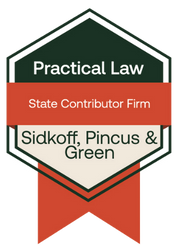Philadelphia Business Lawyers: NJ Court Declares Car Dealer’s Arbitration Clause Unenforceable

The Appellate Division has recently ruled that the arbitration provisions in a New Jersey used car dealer’s sales contract were too confusing to enforce. The dealer had moved to dismiss a customer’s complaint and compel arbitration, despite claims that the dealer had violated the New Jersey Consumer Fraud Act, committed a breach of warranty, and other infractions. However, the court denied the motion on grounds that the documents included three different arbitration clauses with several “hopelessly confusing” contradictory provisions.
The court was concerned that an average consumer who signed one of these sales agreements would have no idea what essential terms they were signing. Consumers would not know how to file a demand for arbitration, within what timeframe and where to file it, or what it would cost. Another concern was conflicting, contradictory requirements. Conflicting statutes of limitations were incorporated, and the document set forth contradictory provisions as to whether the American Arbitration Association or some other forum must be used.
In another contradiction, one clause stated that consumers must provide written notice of a dispute to the dealership 30 days before filing arbitration, but another clause stated that there was no waiting period. The dealer, Federal Auto Brokers, conceded that such contradictory provisions may void an agreement to arbitrate.
In short, arbitration is an agreement between two parties to attempt to resolve a dispute outside of the court system. Parties agree on a neutral third party to serve as arbitrator, and that person acts as both judge and jury. The rules of arbitration are typically a matter of contract between the parties. Arbitration can be either binding or non-binding, depending on the provisions in the contract. The primary benefit of arbitration is that it enables parties to resolve disputes quickly and easily, whereas lawsuits in the judicial system can last for years.
Philadelphia Business Lawyers at Sidkoff, Pincus & Green, P.C. Counsel Businesses and Individuals on Contracts and Frequently is involved in Contract Litigation
If you need assistance negotiating, drafting, or reviewing business contracts – or are involved in litigation related to a contract – the experienced Philadelphia business lawyers at Sidkoff, Pincus & Green can help. To schedule a consultation, call us at 215-574-0600 or contact us online today. With offices located in Philadelphia, we represent clients throughout Pennsylvania and South Jersey.



















